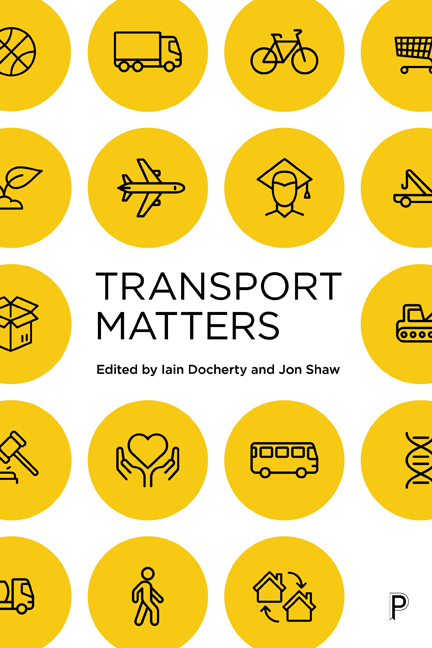2 - The Political Economy of Transport and Travel
Published online by Cambridge University Press: 03 March 2021
Summary
Why think in terms of a ‘political economy’ of transport and travel?
Multi-million pound road improvements will create hundreds of jobs. (Sussex Express 2018)
£16m Doncaster link road plan will create 7000 new jobs. (Doncaster Free Press 2017)
Ambitious plan for Cambridge-Oxford (road and rail) link to create a million new jobs. (ITV News 2018)
Any casual observer of the ways in which transport investment is portrayed in the media would be forgiven for asking why we spend public money on almost anything else given the economic miracles that seem to result from the mere act of pouring asphalt. For many years now, transport projects from the smallest access road to multibillion- pound high-speed railway lines have been promoted on the basis of the numbers of jobs that they will create, or in the case of the very largest schemes, the almost magical ‘economic rebalancing’ that they will induce. Start with an economic development orthodoxy that consistently boils down the highly complex problem of stimulating growth to one of spending money on skills and infrastructure, mix with consistent demands from business leaders to address the ‘urgent need’ for investment in whatever transport projects are deemed ‘shovel ready’ at the time, and add a sprinkling of politicians keen to find a ribbon to cut and you have the recipe for the consistent, almost unquestioning belief that spending money on transport leads to economic growth per se.
The snag is that the evidence base on the links between transport investment and the economy is more inconclusive than we would perhaps like it to be, and it is often far from clear how spending money on infrastructure in particular actually improves economic performance in the real world. While macroeconomic reviews claim links between the overall level of investment with growth at the country level, finding evidence in the real economy, in real places and in real firms about the causal links that explain how such investment promotes better economic performance is usually much more difficult. Even well-cited papers claiming a link between improved infrastructure, the larger markets that result and therefore improved economic performance do so at the level of the economy as an abstract whole, acknowledging substantial caveats in their analysis.
- Type
- Chapter
- Information
- Transport Matters , pp. 29 - 54Publisher: Bristol University PressPrint publication year: 2019



